In the 1st century BCE, the Roman Forum echoed with philosophical debates that shaped law, ethics, and the soul of the Republic.
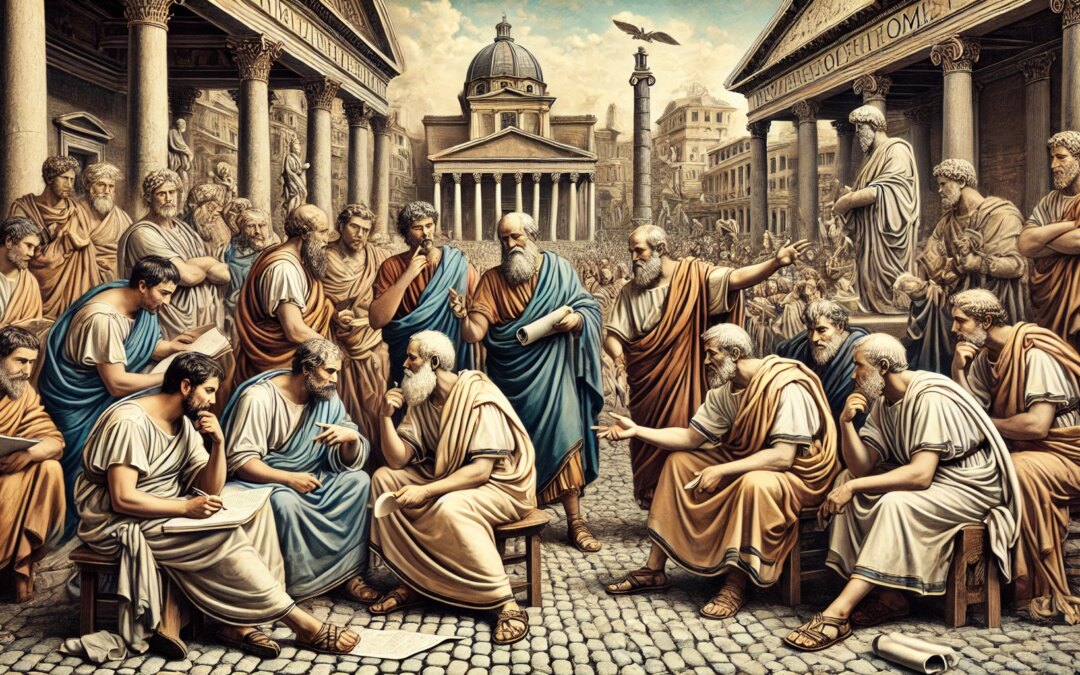

In the 1st century BCE, the Roman Forum echoed with philosophical debates that shaped law, ethics, and the soul of the Republic.
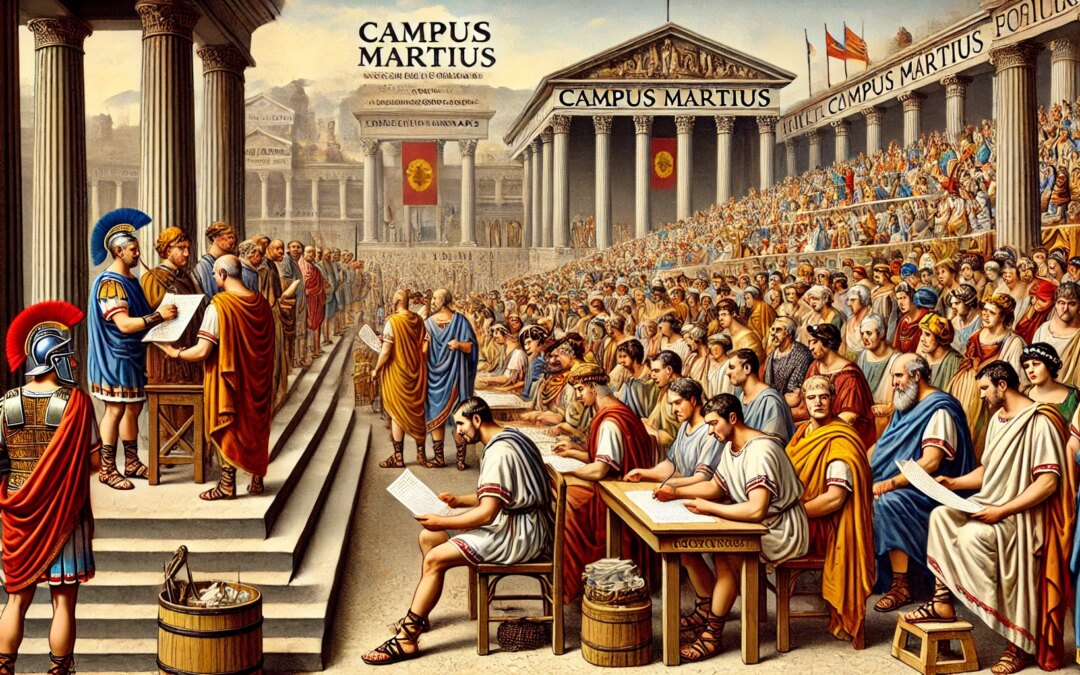
During the Roman Republic, the census was a vital institution—ranking citizens, organizing the army, and shaping Rome’s social fabric.
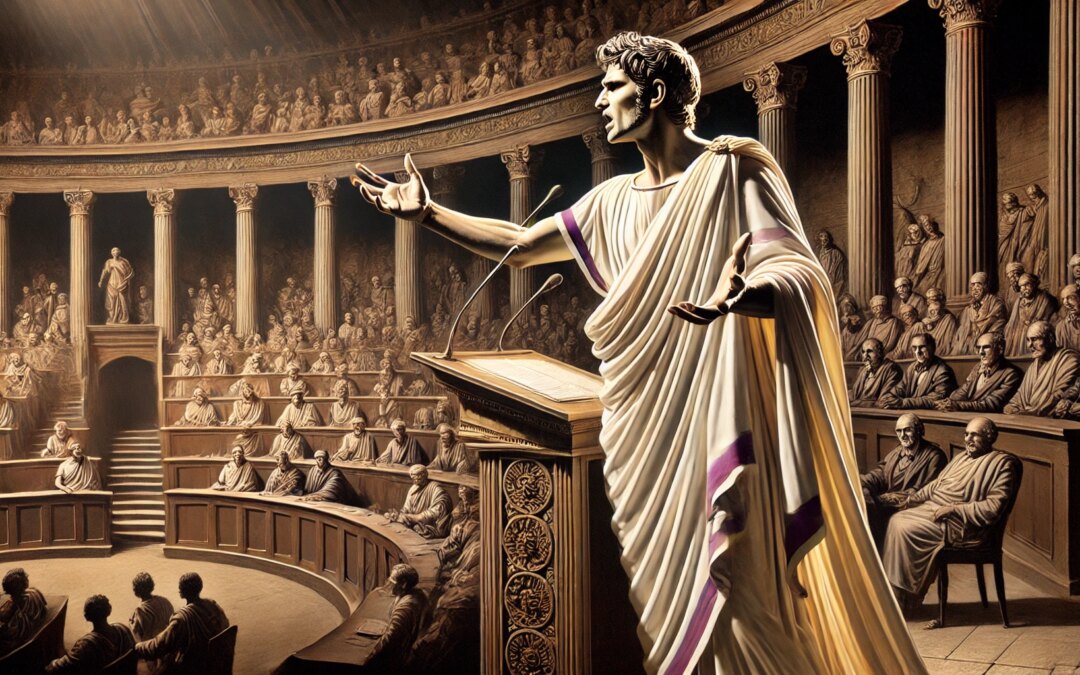
Cicero’s dramatic denunciation of Catiline in the Senate in 63 BCE exposed a conspiracy that threatened the Roman Republic.
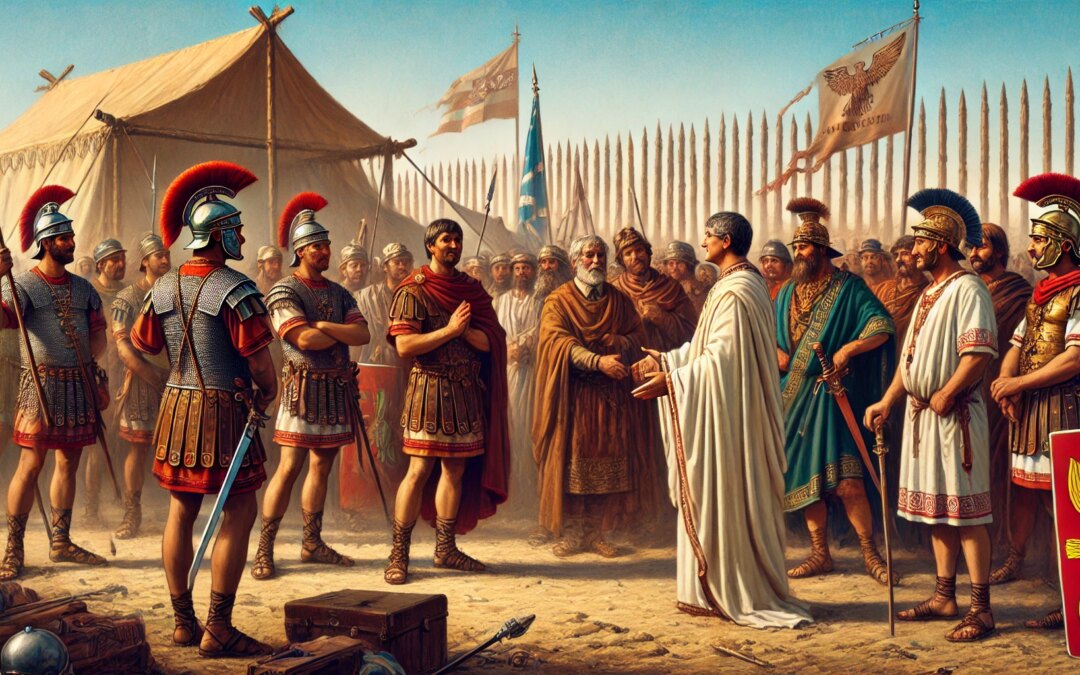
Delve into the early Roman Republic’s pivotal alliance, the Latin League, and its role in shaping the future of Roman dominance in the Italian peninsula.
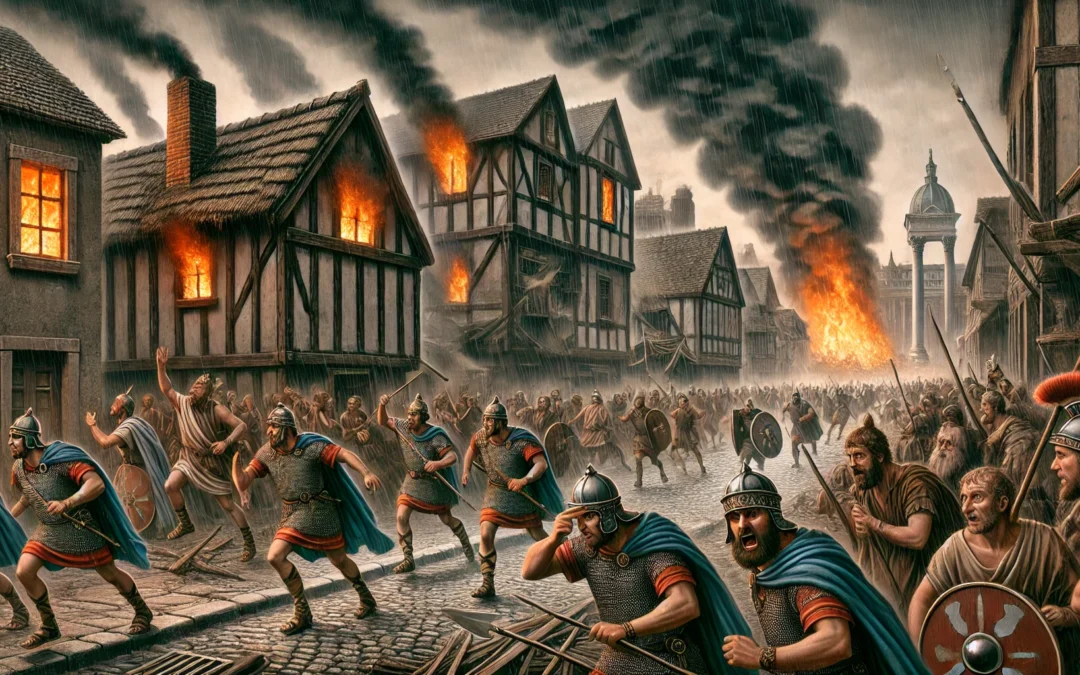
In 390 BCE, Rome faced its first catastrophic sack when the Gauls overran the city. Discover how the Romans endured and rebuilt.
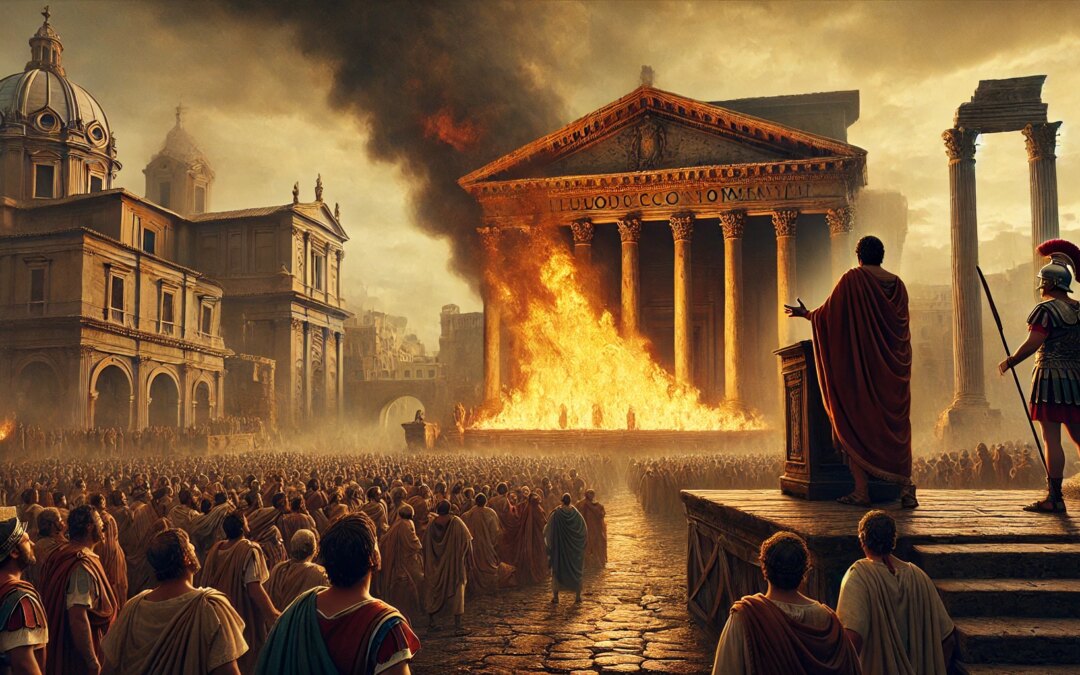
In 44 BCE, Marc Antony’s speech at Julius Caesar’s funeral ignited public fury, setting the stage for Rome’s transformation from Republic to Empire.
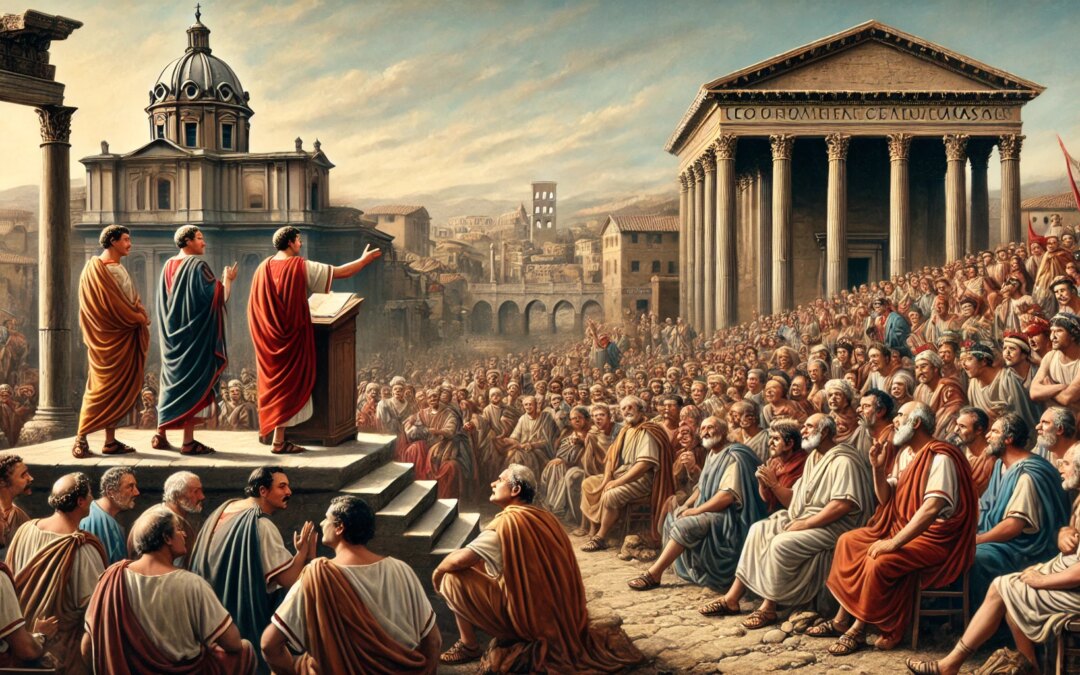
In the 2nd century BCE, Tiberius and Gaius Gracchus led controversial land reforms that challenged Rome’s elite, reshaping the Republic’s political landscape.
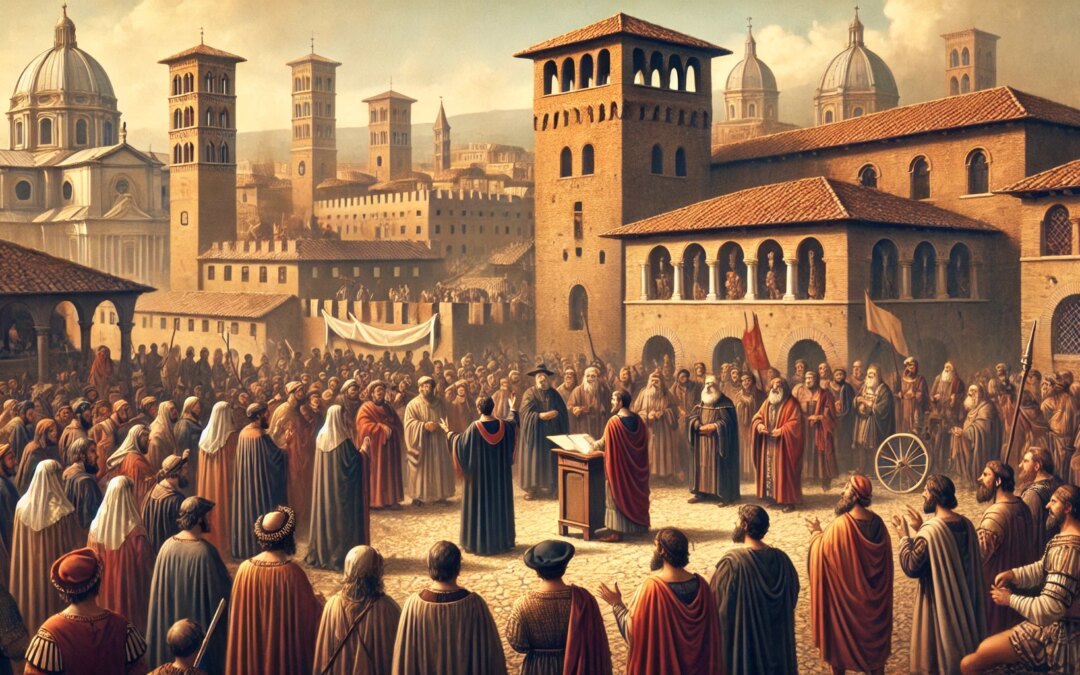
In the 12th century, the Commune of Rome emerged as citizens challenged papal rule, seeking self-governance and a return to the city’s republican past.
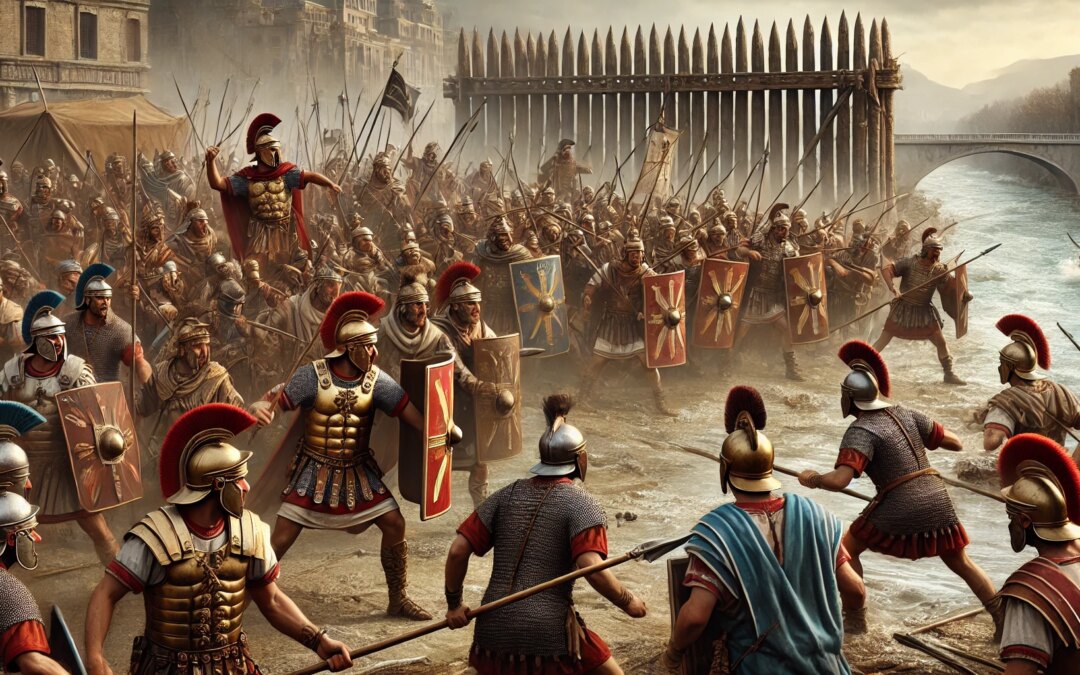
In the 5th century BCE, Rome fought against the Etruscans in a battle for survival, shaping the early Republic’s military and political strength.
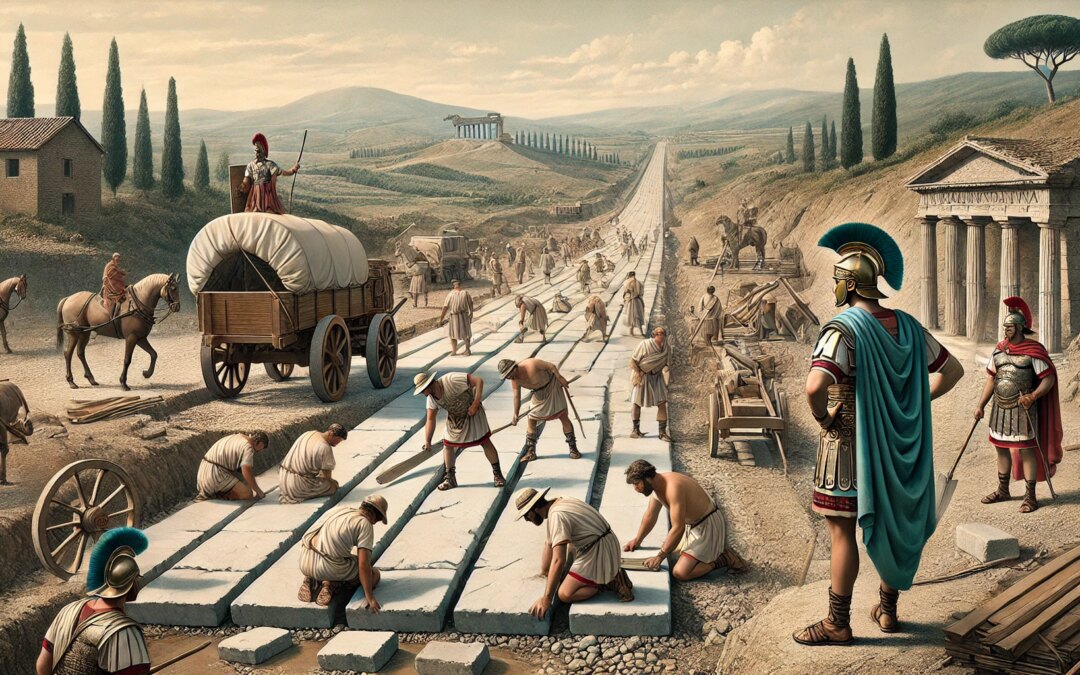
The Via Appia, built in 312 BCE, was Rome’s first major road, revolutionizing transportation and military logistics across the Republic.